What are Editorial Links? (+ 8 Ways to Get Them)
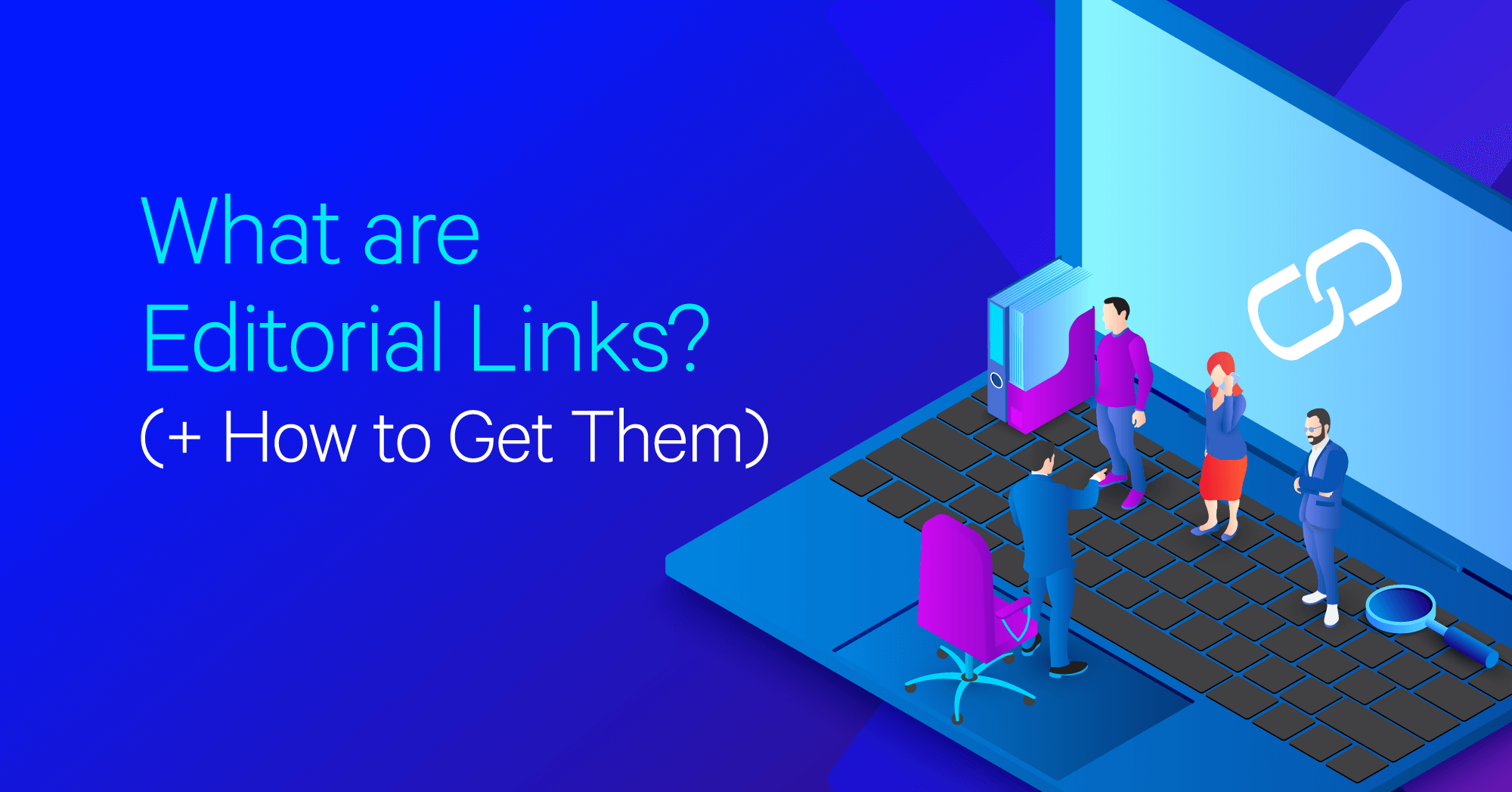
Hand off the toughest tasks in SEO, PPC, and content without compromising quality
Explore ServicesGetting editorial links for your site (or your clients) is the holy grail for SEOs.
But how do you land them? And what even are editorial links? I’m glad you asked.
In this post, you will learn:
- What editorial links are (+ real examples of them in the wild)
- Why they are useful for SEO
- 8 ways marketers can land them
What Are Editorial Links?
An editorial link is a backlink on another website that points back to your website, typically on a large publication but it can also be more niche sites.
This type of link comes from publishing valuable content that people find trustworthy and markets your brand to a broader audience.
Editorial links aren’t requested or paid for by you. Links back to your site that are in guest posts you submit for SEO purposes or to help grow your business don’t count since these are usually requested in exchange for a piece of quality content.
Editorial links are effective because they come from an authoritative site that have pretty impressive metrics:

The links that go back to your website need to be established and also provide quality content and information about specific topics that people use as a legitimate resource and reference.
Editorial link examples
The most obvious examples of an editorial link is when you are mentioned in an article by a site like Forbes, The Guardian, Entrepreneur, Mashable etc:
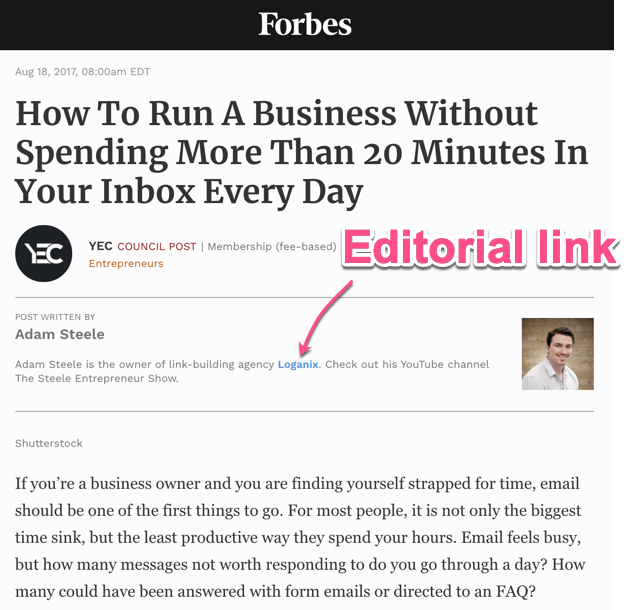
Source: Forbes
But they can also come in the form of expert roundups:

Source: 45 SEO Experts Share Their Most Effective Content Optimization Strategy
Other types of editorial links can also include:
- Referring to your website as a resource for more information
- Showing your website as the creator of a popular infographic
- Including your content or website in a link roundup
- Citing someone from your company as a source of important information
- Interviewing someone associated with your website
What are the benefits of editorial links?
Having just a few editorial links can be much more beneficial to your SEO strategy then a ton of low-quality links.
TLDR: 5 Editorial Link Benefits 🔥
- Establish Yourself as an Authority
- SEO Rankings
- More Web Traffic
- Build Relationships
- Brand Building
Let’s look at each of those benefits in a bit more detail:
1. Establish Yourself as an Authority
Editorial links help establish you as an authority since another established source is featuring and mentions the content.
2. SEO Rankings
One of the main benefits of editorial links is the SEO value. The link value that comes from these authoritative websites is beneficial to help you have higher search rankings. Editorial links help your SEO ranking because they provide valuable links to your business from an authoritative site, help build a strong link profile, and help with link diversity.
3. More Web Traffic
Not only do you get more web traffic from having better SEO rankings that editorial links provide, but you also have higher chances that the niche, larger audience will click on your link and learn more about your business. An informative and unique piece of content is naturally going to attract readers, which then translates to more traffic to your website.
4. Build Relationships
When you are building editorial links, it requires you to reach out to other businesses. Even if your primary focus is to get a link, there are also some other residual benefits to reaching out to other businesses. You are able to foster long-term relationships that could be beneficial to both of the businesses going forward.
5. Brand Building
Good link building helps promote your brand by showing you are an authority in your field. It helps promote the expertise of the company and strengthens the services and goods you offer.
What are the drawbacks of going after editorial links?
Even though editorial links are some of the best to get, there are some drawbacks of link building in general if you aren’t careful.
Link building, especially getting editorial links, is time consuming.
It’s going to take time and just getting one or two inbound links is not going to make much of a difference. You usually need someone dedicated to this process and it can’t be done overnight. Reciprocal editorial links may detract from your website.
If you link to another website in order to get a reciprocal link, you run the risk of someone finding the other website more useful and interesting. You can be penalized if this process is misused as well.
If you are paying for editorial links and get in the habit of paying for links that aren’t quality then this will actually lower your search rankings.
It can be punishable if overdone and you aren’t able to stay on Google. If your links aren’t totally relevant and helpful to the readers then you won’t have the same benefit.
Manual Outreach Vs. Editorial Links
Manual links are some of the most common types of links for SEO.
This involves guest posting and manually contacting bloggers and website owners and asking them to link to you (aka blogger outreach).
You need to give them a motive to link to you so you need to be reaching out to people who are relevant. If you are contacting people that don’t have a connection to your industry, they are going to be confused as to why you are asking for a link.
These links may be acquired via payment. This can include paid linking, article distribution, directing links, and comments on blogs, forums, and other forms of social media.
Both links are going to add value to your site but editorial links are going to be much more valuable.
If people are linking to you with the intention of citing your original content then these links are more trusted. If the link is because you paid for it to promote your own content then these links won’t be worth as much.
Editorial links are going to be harder to get than manual links, but this is what makes these links more valuable.
How to Get (Natural) Editorial Links
Getting high-quality editorial links requires some work. But there are different ways that you can go about acquiring these links.
TLDR: Getting Editorial Links 🔥
- Create Good Content
- Look at Your Competitor’s Editorial Links
- Be Open To Interviews
- Work with Content Creators (To Get Featured in Roundups)
- Reference Another Company
- Update Your Content
- Look for Broken Links
- Contact Writers and Editors from Local Publications
1. Create Good Content
This is one of the most obvious things to do. And by good, we generally mean valuable or newsworthy content. The type of content that authority websites want to share.
After all, don’t say it, don’t say it, don’t say it… content is king.
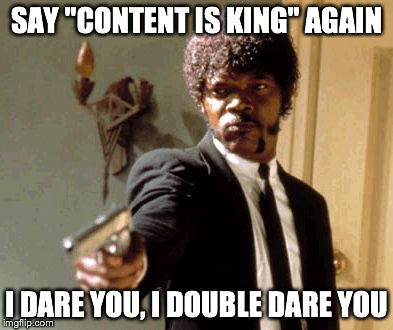
Create informative original content that has a unique twist that people will want to read.
If possible, you want to aim to create evergreen content so that your content doesn’t become irrelevant in the future. The content needs to be quality so you need to pay attention to the details and have great grammar and spelling.
The content should be easy to read and have the right structure.
In order to get quality content, it may need to be longer, but this doesn’t mean it shouldn’t be easy to read and follow. Make it easy for people to share. Also pay attention to the headline since most people will read the headline.
2. Look at Your Competitor’s Editorial Links
Once you know who your online competitors are you can then look at what they are doing.
You may be able to turn the editorial links your competitor is using into your own.
- Do a Google search for the top keywords you are targeting.
- Keep track of the editorial listings that may have your competitor’s websites on the first page of the search results.
- Then use a backlink research tool to see where the editorial links are for your competition.
- This may not technically be an editorial link since you are asking for the link but it’s still a way to get the quality link.
Uncover new backlinks 🔗
Give us some competitor URLs and we’ll analyze the backlink profiles of each to look for overlaps. Then we’ll pull it together into an actionable backlink gap analysis report.
3. Be Open To Interviews
Making yourself available for interviews can help you ensure that you are going to get some editorial links. Interviews are some of the most shared content on the Internet.
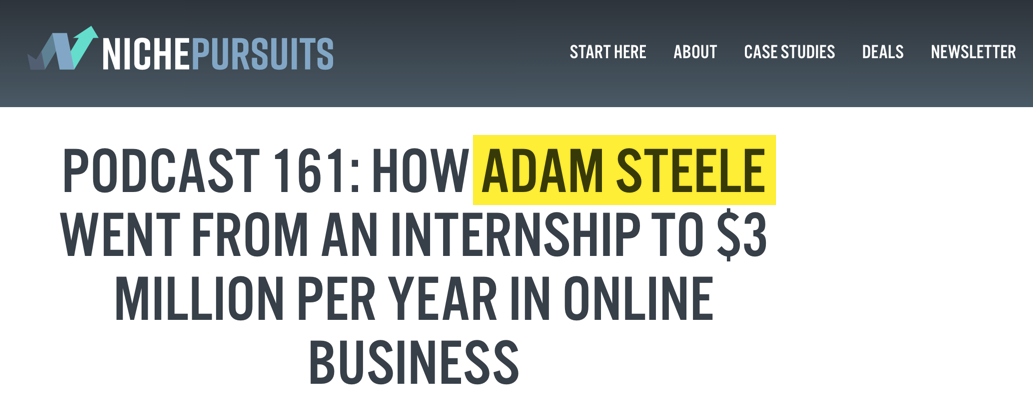
You can also interview others in order to bring some new eyes to your website.
The person that gets an interview for your website blog is going to want to share it on their own.
4. Work with Content Creators (To Get Featured in Roundups)
Creating roundups of content is a trend that doesn’t seem to be going anywhere, and this is good news for those who are looking for editorial links.
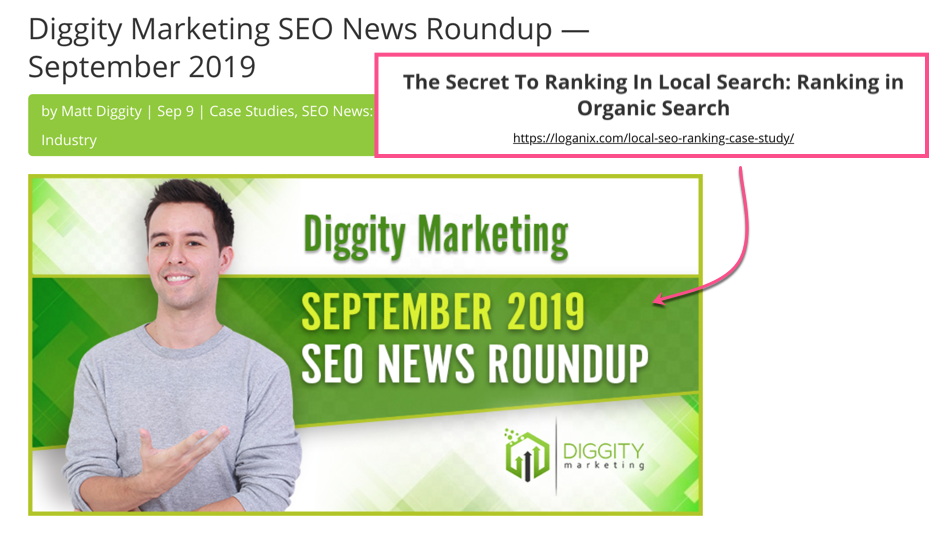
One of the best things about content roundups is that the information is easy to put together and is useful for readers who want to learn more about that particular topic.
In order to get into a content roundup, you need to get in touch with content creators in your industry that have websites with a lot of traffic and are considered resources.
Once you have found these people keep sending them your best content.
You never know when you may be added into a roundup that already exists or one in the future.
You do want to make sure that your website is running fast when you are sending out your content. You don’t want to direct people to your website if the performance and speed are lacking since this is a quick way to turn people away.
5. Reference Another Company
When you mention another company and give them an advertorial link, be sure they know about it. When you do social shares, mention them and ask that they share your article.
Why You Shouldn’t Worry about the Latest Google Algorithm Update by @AdamGSteele on @flippingbook
✅ How often Google updates its search algorithm?
✅ When to worry about an algorithm update?
✅ What to focus on instead of algo updates?Read more:https://t.co/g4TQ8Zt9Fm
— Loganix (@loganix) January 26, 2022
They will actually be more likely to share it since they are mentioned. Once you are on their radar, they will be more likely to read your stuff and hopefully return the favor.
This works if the company you are mentioning is in your industry but not a competitor.
6. Update Your Content
Creating quality content is one of the most important things you can do in order to get more editorial links, but keeping your content up to date is just as important.
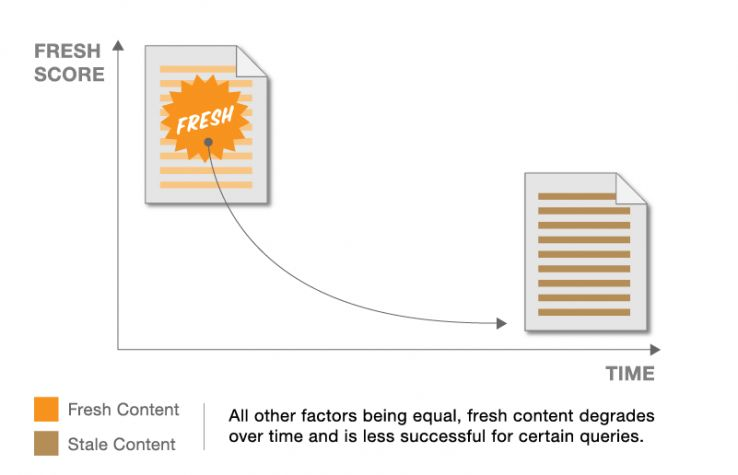
Source: https://moz.com/blog/google-fresh-factor-new
If you feel that a post needs an update, go for it. This is important because nobody is going to care for an old post when there is a more effective or newer one out there.
Once you have updated your post let editors who have already linked to your article know that you have updated the content.
This piece of information is appreciated by many editors and will also help pave the way for some more editorial links.
7. Look for Broken Links
Broken links give you an opportunity to earn other editorial links. With this, you need to look for suspended and expired domains that come under your niche. The older the domain, the better.
Check the domain using a backlink checker and look at the links.
Hint: Ahrefs has a dedicated broken backlink checker you can use:
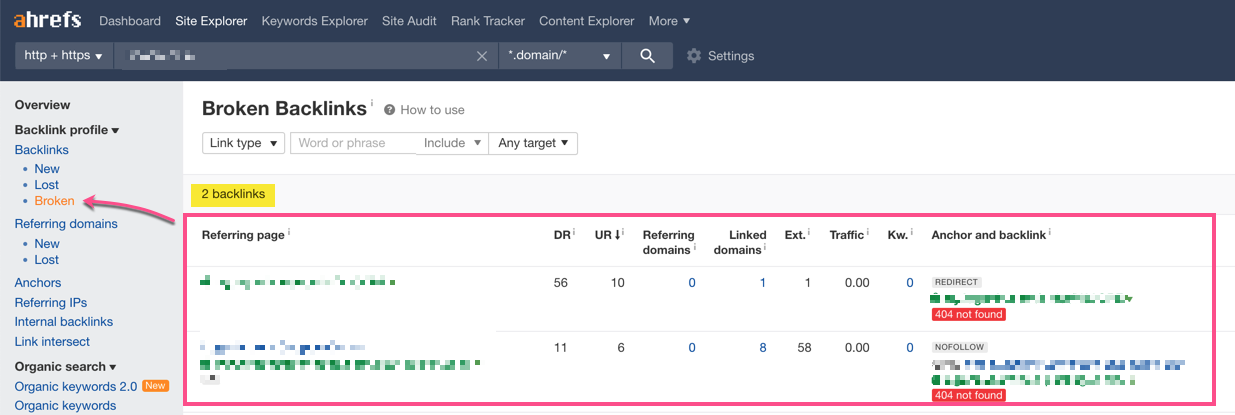
Look at the most powerful links and these are the targets.
Contact the site owner of the link and let them know that a dead site is linked to the website. Suggest a few websites with similar content that will include your website also.
Since you are helping the webmaster point out broken links your website should have first priority to replace the dead link.
8. Contact Writers and Editors from Local Publications
Writers love to be able to include sources in their work since it helps strengthen the credibility of the stories. Finding these linking opportunities is easy if you have the right value that is needed.
This method can require a lot of research, but the returns are great.
A successful approach can lead to a good viral effect for content. Make sure that the publications you choose are relevant to your site’s industry.
In order to find publications in your industry, just Google your topic + news.
[“keyword” news]
This obviously works well for a topic like SEO:
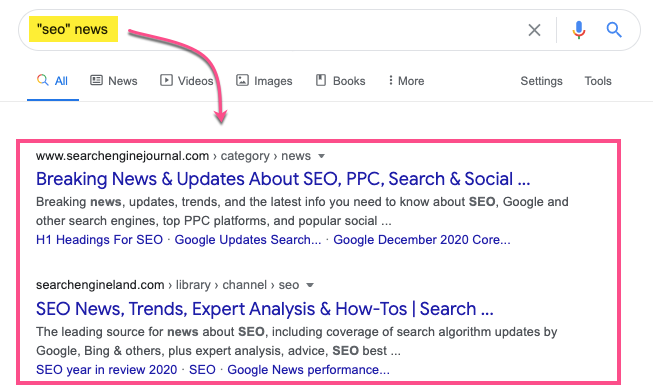
But it also works surprisingly well for other industries:
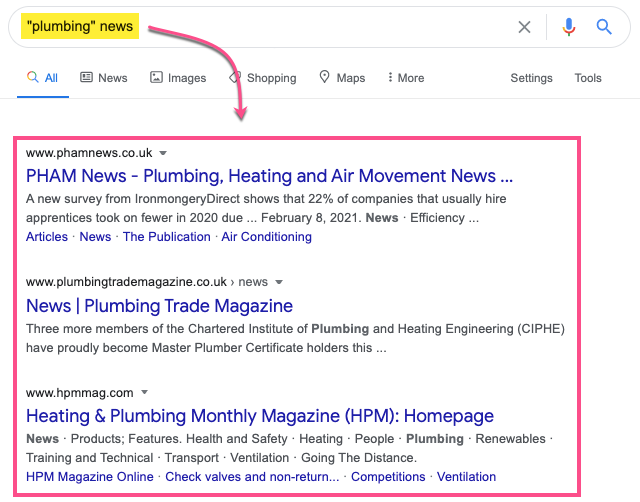
Finding Topics for Editoritorial Links + PR
If you have one, it helps to get the PR department involved when looking at getting editorial links. It’s their job to talk with big publications and help the company gain visibility.
The PR department can be helpful and know what kind of content is newsworthy and the best chances you have of making a link happen on a website.
Digital PR Examples
Looking for examples of successful editorial campaigns + digital PR? Check out the collection of resources over at Digital PR Examples.
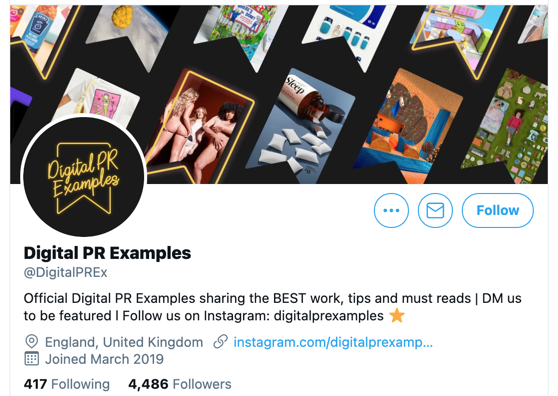
In some cases, the PR professional may already have an existing relationship with an editor and can ask him or her directly to up your chances.
Finding the right topic can be the hardest part about creating content.
In order to increase your chances of editorial links through your content, search Q &A websites for potential topics. Websites such as Quora or Reddit can give you a number of unanswered questions.
When creating content, it helps to know the different reasons why people would link to your content…
- They may have found it extremely interesting or useful and want to be the first ones to share the content and spread it to their circle.
- They are mentioned in the content and want to share it and boast about it.
- They are personally or professionally attached to the creator or the creator has requested that the content be shared.
The linker can benefit from linking the content, such as incentives of payment.
In order to have editorial links, however, there is no payment so their content should be shared for the first reasons.
Content that will attract links is first of its kind, entertaining, extremely useful, emotionally captivating, educational, free, and comprehensive.
Further Reading
Here are a couple of useful resources for finding link worthy content marketing topics and some PR tips:
- A crash course in getting press and building links by Marketing Examples
- 5 Steps to Creating Link-Worthy Content by Oncrawl
- How to Do an SEO Competitor Keyword Analysis by Loganix
Summary
Link building is one of the best SEO strategies to help you get better search results.
It can also be one of the most neglected strategies to help boost your SEO because there is a lot to understand about links and best practices.
Gaining editorial links doesn’t have to be challenging and there are a number of benefits to having these for your SEO strategy.
Hand off the toughest tasks in SEO, PPC, and content without compromising quality
Explore ServicesWritten by Jake Sheridan on February 19, 2021
Founder of Sheets for Marketers, I nerd out on automating parts of my work using Google Sheets. At Loganix I build products, and content marketing. There’s nothing like a well deserved drink after a busy day spreadsheeting.





